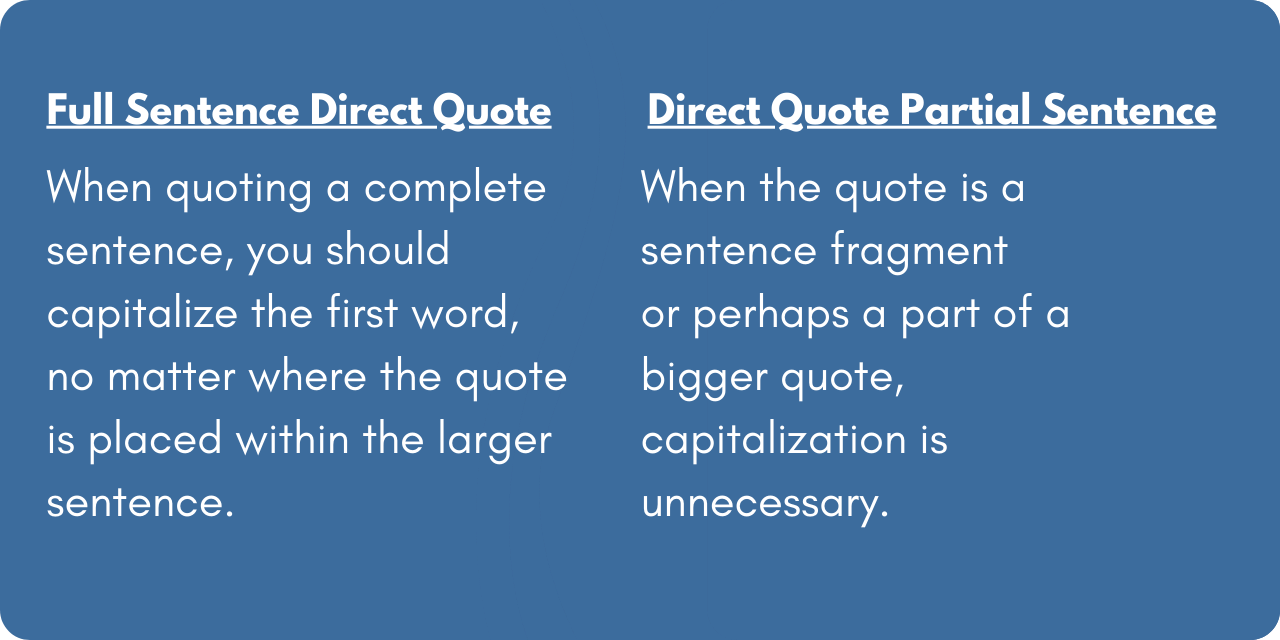Full Sentence Direct Quote – Capitalize The First Word:
When considering capitalization in quotes, the first rule to remember is – when quoting a complete sentence, you should capitalize the first word, no matter where the quote is placed within the larger sentence.
For example:
John said, “If these trends continue, we’ll be out of business in no time!”
We have been conditioned to reserve capitalization for the beginning of sentences (names and places notwithstanding), so seeing a capital letter in the middle of a sentence can seem like an error. When dealing with capitalization in quotes, however, capitalization in mid-sentence is relatively common and is to be expected. More specifically, when the quote forms a complete sentence, its first word has to be capitalized, no matter where it appears in the main sentence. To give you a better example, all of the sentences below are grammatically correct:
“If life were predictable, it would cease to be life, and be without flavor.” – Eleanor Roosevelt”
James Cameron’s proclamation, “If you set your goals ridiculously high and it’s a failure, you will fail above everyone else’s success” has been inspiring young filmmakers to chase their dreams.

Direct Quote Partial Sentence – Don’t Capitalize.
Not all quotations within a sentence are capitalized, however. When the quote is a sentence fragment or perhaps a part of a bigger quote, capitalization is unnecessary. Note the lack of capitalization in the quote below:
Steve Jobs advocated for fully utilizing the limited time given to each person on this planet, warning against wasting it by “…living someone else’s life.”
Although it can certainly be amusing, following Oscar Wilde’s steps and proclaiming to the border agent that you have nothing to declare “but your genius” might get you in trouble.
When facing accusations, Richard Nixon maintained that he was “not a crook.”
Capitalization in Quotes Errors:
Let’s correct the sentence below to deepen our understanding of capitalization in quotes:
- After months of uncomfortable negotiation, McLaren decided “enough is enough” and pulled the plug on the deal.
Although the quote seems like a fragment, it is a complete sentence and should be treated as such by being capitalized. Furthermore, a comma is needed following the attribution (“McLaren decided”): “After months of uncomfortable negotiation, McLaren decided, “Enough is enough” and pulled the plug on the deal.” (Note, also, that there is no punctuation after the quotation because an independent clause follows it. Should there have been a noun or a pronoun after and, we would have to add a comma at the end of the quote: “After months of uncomfortable negotiation, McLaren decided “Enough is enough,” and the company pulled the plug on the deal.”)
Now that the concept is clear, you can test yourself using this little quiz.






